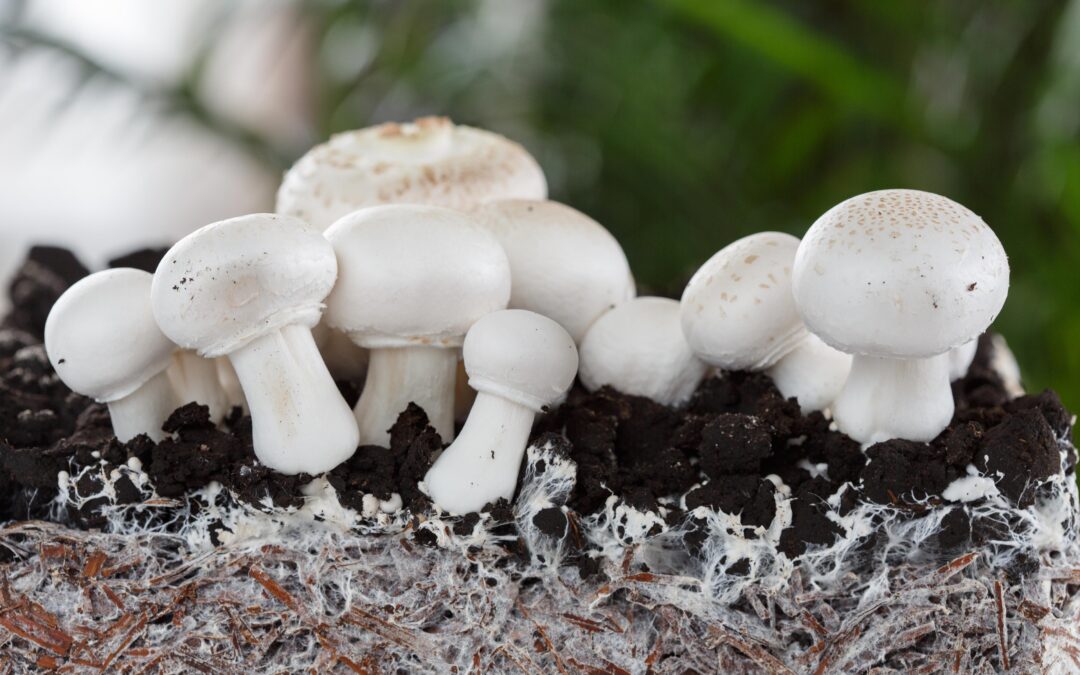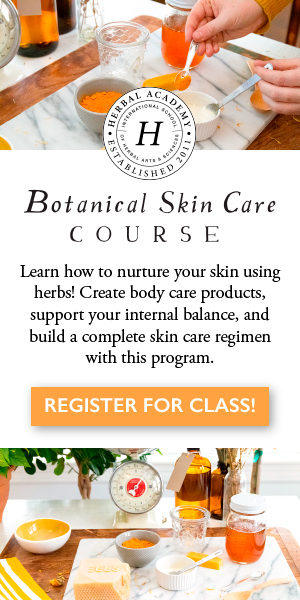
by Leslie Moldenauer | | Body, Mind, Uncategorized
A mere decade ago, holistic medicine largely overlooked the intricacies of endocrine challenges the thyroid or adrenal glands pose. Nearly all dis ‘ease’ can be linked to the endocrine system, so we must address issues early on. Exhaustion has long been a mother’s companion throughout history, given the monumental tasks they shoulder. Yet, today, crippling exhaustion is not just a commonplace feeling but a serious issue linked to widespread endocrine weaknesses. Why are we all so exhausted?
Many women endure debilitating exhaustion beyond the ordinary tiredness, and those who don’t experience it may dismiss it as mere fatigue. However, the reality is far more profound. Allopathic medicine is lagging in addressing this matter adequately, and many scoff at the term adrenal fatigue altogether. Doctors often resort to blood tests, providing a limited perspective on endocrine health. Thyroid tests may yield average results, leaving many women frustrated and dismissed, with their symptoms labeled as psychological.
Ladies, how often have you been told it is all in your head?!?!
The United States, unfortunately, ranks high in stress levels due to its demanding work culture. Shockingly, working mothers in the U.S. receive a pitiful six weeks of paid leave after childbirth, compared to European countries offering up to 20 weeks. Moreover, 85.8% of males and 66.5% of females in the U.S. work over 40 hours per week, making it the most overworked nation globally. Vacation time is often not even taken. In the United States, a concerning trend persists where many Americans do not take advantage of their vacation time. How can this be?
Despite having earned time off, many individuals either forgo their vacations altogether or hesitate to use the full extent of their allowed leave. This phenomenon is caused by workplace culture, fear of falling behind in workload, being seen negatively by coworkers, and the relentless pursuit of professional success. Unfortunately, this lack of vacation utilization increases stress, burnout, and potential long-term health issues, emphasizing the importance of promoting a healthier work-life balance for overall well-being.
Living through a pandemic has been like enduring a never-ending storm, triggering our primal fight, flight or freeze responses day after day. The persistent uncertainty, the constant adaptation to new norms, and the relentless news cycle create a background hum of stress that keeps our bodies alert. It’s a survival mode that, over time, takes a toll on our mental and physical well-being. Living in the freeze of those moments of uncertainty where we feel paralyzed by the weight of it all is a survival dance that we’ve all been part of for years, and it has left many feeling emotionally drained and physically exhausted.
As we age, many begin to see that they wish they could go back in time and make the changes needed to benefit their physical and mental wellness before it is too late. To address this alarming issue, a holistic approach is imperative. The endocrine system, encompassing various glands like the thyroid, adrenal, and pituitary glands, plays a crucial role. The thyroid, often called the body’s master metabolic control center, influences vital functions such as brain, heart, and kidney function, body temperature, growth, and muscle strength.
Recognizing the symptoms of adrenal fatigue is vital, as it often follows thyroid issues. Exhaustion beyond the norm, cravings for salty foods, difficulty concentrating, trouble sleeping, feeling that proverbial second wind in the evenings, heart palpitations, weight gain, and recurrent colds indicate adrenal weakness (not an all-inclusive list). Understanding these signs is crucial for seeking proper medical attention.
Exercise
Addressing the root causes involves lifestyle adjustments. Reducing cardiovascular activity and incorporating burst training, yoga, weight training, and walking is advisable. While diet and exercise culture tells us that cardiovascular exercise is king, cardiovascular training, like running, taxes the adrenal glands further. When weakened, our adrenal glands need to focus on less cortisol, and cardio floods the body with cortisol. Ideally, with each piece of burst training, you must allow your heart rate to come down before beginning again. If you need time to recover from cardio or it leaves you feeling totally depleted, your body is telling you it needs your attention.
Nutrition
Nutrition plays a pivotal role in the health of our endocrine system; maintaining balanced sugar levels through quality protein and fat while avoiding refined carbohydrates is crucial. Avoiding all grains is ideal, as is eating vegan while consuming healthy fats such as nuts and seeds, avocados, and coconut. If meat is a must, organic, pasture-raised is essential. Avoid farmed fish and conventional meat due to their high level of toxicity.
Eating smaller, frequent meals is recommended, especially during advanced stages of endocrine deficiencies. In addition, depending on your deficiency stage, there may be challenges absorbing nutrients due to a leaky gut phenomenon. Liquid vitamins are a great idea during this time. A few things you want to be sure you are getting in your daily diet are magnesium, zinc, complex B vitamins (especially B6), and a quality multivitamin while working on your gut health.
Stress and Sleep
Sleep is critical to recovery and establishing a consistent sleep routine. Teatime rituals, avoiding electronic devices before bedtime, and incorporating calming herbs like passionflower, lemon balm, and lavender can promote relaxation. Lifeholistically has a tincture that addresses the issues of sleep and stress called Happibliss. It is made from experience and intention. Magnesium lotion is also beneficial for sleep, aches, and pains and is advantageous to a healthy endocrine system.
My Abbreviated Story
I write all of this for complete transparency from a place of experience. If you want to get your adrenals tested, know that a one-period-in-time blood test is not the test you need. A blood test will not give you an accurate representation of the health of your adrenal glands throughout the day. I decided to share my test results from 2015 to show you where I was and where I stayed for a few years before restoring my health (they were scary times).
It took time, working with a specialist in California, a lot of emotional work, proper nutrition, and leaving behind many things. Many years later, I am armed with so much more knowledge and can now see things I did not see back then that kept me in a place of insufficiency. You can turn things around by being very health-focused and having radical honesty with yourself.
20240105_084328
Understanding the Results
Ideally, the body should wake in the morning with the highest cortisol level through the four measured times so you are awake feeling refreshed and ready to take on the day and will slowly do down, with the lowest reading being at the end of the night for restful sleep. The 13.4-24.0 nM/L range is the first reference range, and my results show 6.2 nM/L. From there, you can read on down.
I was dangerously low to where I felt like I was a dead weight the entire day. The best example I can give is that it felt as if there were cement blocks tied to my wrists and feet. If you are feeling this way day after day, it is time to pay attention and take action.
Aromatherapy
Aromatherapy offers a soothing pre-sleep ritual with a carefully crafted diffuser blend containing lavender, marjoram, ylang-ylang, and neroli. Studies show that this blend lowers cortisol levels, which is needed for quality sleep (Kim et al., 2012). Throughout the day, you will likely need something to give you a pick-me-up and, during times of higher stress, something entirely different. If you need assistance, I will share what worked for me and complete custom blending based on experience and science. Reach out at Lifeholistically@gmail.com
Self-Care
Managing stress involves accepting, removing unnecessary responsibilities, and avoiding self-imposed “shoulds.” Prioritizing self-care must be balanced. It’s an ongoing process, requiring education on essential oils, cautious use, and a commitment to well-being. While not a substitute for professional medical advice, these suggestions empower individuals to take charge of their health and well-being.
In conclusion, overcoming exhaustion, stress, and burnout is multifaceted, but it explains why we are all so exhausted. To do this, one must not only look at diet and exercise, but self-care and emotional burdens are also a big piece of the picture. This holistic approach, tailored to individual needs, emphasizes the importance of self-care, acknowledging the unique challenges faced by each person.
Reference
Kim, I.-H., Kim, C., Seong, K., Hur, M.-H., Lim, H. M., & Lee, M. S. (2012). Essential oil inhalation on blood pressure and salivary cortisol levels in prehypertensive and hypertensive subjects. Evidence-Based Complementary and Alternative Medicine, 2012, 1–9. https://doi.org/10.1155/2012/984203
How to Find Balance Together During the Covid Pandemic
How can we use Holistic Therapies During Difficult Times

by Leslie Moldenauer | | Essential Oils, Mind
Digestive enzymes play the role of helping to break down our food by creating chemical reactions, which makes them invaluable in supporting our digestive system. These primary enzymes are amylase, which helps to break down starches and carbs into sugars; protease, which is responsible for breaking down proteins into amino acids; and lipase, which breaks down lipids commonly known as fats and oils. Mycelium found in the network of the root system of mushrooms is another source of enzymes and is a potent elixir for health. Some state that the mushroom’s fruiting body is the only part of the fungi worth consuming, but that is not the whole story. Welcome the miracle mushroom, mycelium polysaccharides for health.
Mycelium is the vegetative part of fungi, consisting of a vast network of delicate, thread-like structures called hyphae. It plays a crucial role in nutrient cycling and decomposition in ecosystems. It is truly fascinating how it supports life underfoot. Mycelium has garnered increasing attention for its potential health benefits, particularly in recent years. The health benefits of mycelium from mushrooms are vast, as many people are discovering. Think of mycelium as the plant’s immune system; this system or network allows the mushroom to thrive.
There are benefits to mycelium and the fruit body of a mushroom. Testing has shown that more beta-glucans (polymers) exist in the fruit body (soluble and insoluble forms). Still, we must look at the whole, not just a part of the mushroom to understand the big picture, including the complex system of mycelium (much like another powerhouse green plant we all know and love that is most beneficial as a full spectrum) and you will discover, not all heroes wear capes.
*Those reading this blog over the years know that essential oil distillation does not remove much of the plant’s chemical compounds, and to get as close to the profile of the plant as possible, CO2 extraction is much more valuable. When it comes to mushroom extracts, many active ingredients are not extracted in the hot water process, which is the same issue presented with steam-distilled essential oils. Hot water extraction is only one of many methods to extract valuable constituents for mushrooms, although it is the most common.
Mycelium is not simply dug up from the ground and processed for consumption; it must be grown, or the proper term, fermented. Most reputable companies use organic brown rice to accomplish this task, while others use organic oats.
Because of this, nay-sayers state that mycelium-based products are ineffective and pumped full of fillers. It turns out that is not the full story.
Enter the research that found that mushroom mycelium and its fermented substrate have potential health benefits (Fungi Perfecti, 2019).
To summarize the research:
-Mushroom mycelium is “incredibly potent in triggering immune cell function.”
-Even when separated from pure mycelium, fermented substrate (organic brown rice) effectively supports natural immune function.
-Pure mycelium and fermented substrate each offer unique yet complementary health benefits.
-Many constituents, not just beta-glucans, stimulate the immune-enhancing benefits of mushrooms. Think of this as the whole, not just a piece.
The research confirms that the beneficial mushroom mycelium and the fermented substrate used to grow the mycelium are both immunologically active. They cannot be separated. This is comparable to other fermented products we know and love, including kombucha, yogurt, and kefir.
Polysaccharides are another bioactive constituent in the fruiting body and the mycelium (Liu et al., 2016). A growing body of research shows that these polysaccharides play an essential role in healthy gut microbiota as a form of prebiotics. These polysaccharides have anti-inflammatory, anti-tumor, and anti-cancer properties (Hyder & Dutta, 2021). The fruiting body and mycelium also contain beta-glucans, which stimulate and boost the immune system, helping the body defend against infections and disease.
*This article was not written to diagnose or treat disease, only to inform.
Mycelium shines in several areas, including its ability to increase nutrient absorption. That is important for those with gut imbalances and possibly even leaky gut. Mycelium is adept at absorbing nutrients from its surroundings, making it a rich source of vitamins, minerals, and other bioactive compounds. Consuming it can supplement our diet with these essential nutrients, promoting overall health.
Mycelium is also known for breaking down complex organic compounds, including toxins and pollutants, into simpler molecules that can be excreted from the body, such as sugars and amino acids. Therefore, we can reasonably conclude that mycelium’s enzymes can also detoxify our terrain, supporting the body’s detoxification processes when consumed. This is the likely explanation for mycelium’s anti-tumor action.
Many say that the liver does a fine job at detoxifying our bodies; however, much like a glass that can only hold so much water before overflowing, our increasingly toxic environment, coupled with mineral loss in food and not eating well enough, leaves our liver unable to function as well as it could. Much literature suggests an association between impaired detoxification and diseases like cancer, Parkinson’s disease, fibromyalgia, and chronic fatigue/immune dysfunction syndrome (Liska, The Detoxification Enzyme Systems 1998). We cannot leave it all to our liver without providing it with additional support.
Antioxidant Properties
Some mushrooms and mycelia are rich in antioxidants, such as polyphenols and flavonoids. Antioxidants can help combat oxidative stress and reduce the production of harmful free radicals, which may play a role in detoxifying the body. Some mushrooms high in antioxidants include shiitake, lion’s mane, and reishi. Antioxidants lower oxidative stress, which supports heart health and brain function (Mandal, 2018).
Immune System Support
Certain mushrooms, like Reishi and Turkey Tail, have been studied for their immunomodulatory properties. A well-functioning immune system is crucial for the body’s defense against toxins and pathogens.
It is important to note that while there is research on the potential health benefits of various mushrooms and their mycelia, the field of mycology and its connection to human health is still evolving. Specific effects and mechanisms of action can vary depending on the type of mushroom and its bioactive compounds.
It is essential to note that mycelium’s health benefits are still an active area of research, and while promising, more studies are needed to fully understand its mechanisms and potential. Mycelium is commonly consumed in various forms, such as dietary supplements, teas, and culinary dishes. However, consulting with a healthcare professional before incorporating it into a daily routine is advisable, especially if specific health concerns or conditions exist.
I am not a mushroom supplement company affiliate, but have a purchase criterion. Look for organic and sustainable. Look for a company that offers both the fruiting body and the mycelium. Stay tuned for future articles on the subject, as this is just the tip of the miracle mushroom iceberg.
To your health,
Leslie
References
Benson, K. F., Stamets, P., Davis, R., Nally, R., Taylor, A., Slater, S., & Jensen, G. S. (2019). The mycelium of the trametes versicolor (Turkey tail) mushroom and its fermented substrate each show potent and complementary immune activating properties in vitro. BMC Complementary and Alternative Medicine, 19(1). https://doi.org/10.1186/s12906-019-2681-7
Fungi Perfecti, L. (2019, December 6). Immune benefits of mushroom mycelium & fermented substrate validated by peer-reviewed science. PR Newswire: press release distribution, targeting, monitoring and marketing. https://www.prnewswire.com/news-releases/immune-benefits-of-mushroom-mycelium–fermented-substrate-validated-by-peer-reviewed-science-300970408.html
Hyder, M. S., & Dutta, S. D. (2021). Mushroom-derived polysaccharides as antitumor and anticancer agent: A concise review. Biocatalysis and Agricultural Biotechnology, 35, 102085. https://doi.org/10.1016/j.bcab.2021.102085
Liska, D. (1998). The Detoxification Enzyme Systems. October 17, 2023, http://anaturalhealingcenter.com/documents/Thorne/articles/DetoxificationEnzymes.pdf
Liu, X.-C., Zhu, Z.-Y., Tang, Y.-L., Wang, M., Wang, Z., Liu, A.-J., & Zhang, Y.-M. (2016). Structural properties of polysaccharides from cultivated fruit bodies and mycelium of cordyceps militaris. Carbohydrate Polymers, 142, 63–72. https://doi.org/10.1016/j.carbpol.2016.01.040
Mandal, Dr. A. (2018, August 23). Mushrooms contain high amounts of antioxidants that combat aging and promote health. News. https://www.news-medical.net/news/20171109/Mushrooms-contain-high-amounts-of-antioxidants-that-combat-aging-and-promote-health.aspx
Rubel, R., Santa, H. S., dos Santos, L. F., Fernandes, L. C., Figueiredo, B. C., & Soccol, C. R. (2018). Immunomodulatory and antitumoral properties of ganoderma lucidum and Agaricus brasiliensis (agaricomycetes) medicinal mushrooms. International Journal of Medicinal Mushrooms, 20(4), 393–403. https://doi.org/10.1615/intjmedmushrooms.2018025979
Astragalus Root for Immune System Support and Respiratory Ailments

by Leslie Moldenauer | | Mind
Self-compassion, a concept first documented in connection to the Buddhists, or, more specifically, Secular Buddhism, is rooted in less suffering for all. A Tibetan Buddhist prayer says, “May all beings have happiness and the cause of happiness. May they be free from suffering and the cause of suffering.” This beautiful sentiment is rooted in compassion for self and others. Most of us are much more inclined to give our compassion to others before considering that we need it now more than ever. This brings me to moving beyond self-care to self-compassion for mental and physical wellness.
“Hold yourself as a mother holds her beloved child.” —Buddha
First and foremost, compassion is always present when there is no judgment or qualifying factors. Compassion is often defined as a deep awareness of the suffering of others, coupled with the desire to alleviate that suffering. The absence of judgment is critical to compassion because judgment tends to cloud our perception of others and their struggles. When we judge, we impose our values, beliefs, or expectations on a person or situation. This judgment can distance us from understanding the true nature of someone’s suffering.
The person who most needs your compassion is you. We can scratch the surface by getting enough sleep, drinking tea, journaling, meditation, mindfulness, and practicing intentional breathing to add peace, calm, and happiness into our daily lives. However, self-compassion goes well beyond this.
Practicing self-compassion holistically involves nurturing and caring for yourself on multiple levels, including physically, mentally, emotionally, and spiritually. Here are some practical steps to help you holistically cultivate self-compassion:
Challenge Negative Self-Talk:
Pay attention to your inner dialogue. Replace self-criticism with self-encouragement and kindness. When you notice self-critical thoughts, reframe them more compassionately and constructively. Understand that the ability to reframe negative self-talk, if that has been a constant in your life, will take time, but stay on the path; it gets easier with time. You can overcome self-criticism.
Set Realistic Expectations:
Set achievable goals and expectations for yourself. Understand your limits and be gentle when you don’t meet your own standards. It’s important to acknowledge that everyone has limitations and makes mistakes. Habits need to be challenged consistently to be changed.
Seek Social Support:
Connect with supportive friends and family. Share your thoughts and feelings with people who provide empathy and understanding. Don’t hesitate to ask for help or lean on your support network. If you struggle to ask for help or do not have your network available when you need it (not everyone has the capacity to help when they are going through their stuff), consider reaching out for help from a professional. Remember, you are strong when you ask for what you need, not the opposite.
Embrace Emotional Acceptance:
Allow yourself to feel a range of emotions without judgment. Remember that all emotions are valid and part of the human experience—practice self-compassion by treating your emotions with kindness, whether positive or negative. Healing takes time. Emotions can be complex, and it’s ok to take your time to work through them. Be patient with yourself in the process.
Set Boundaries:
Learn to set healthy boundaries to protect your well-being. Recognize when you need to say no to additional commitments or when you need to distance yourself from toxic relationships. A key takeaway regarding boundaries is people will often be much happier when you are quiet (allowing bad behavior) but much less happy when you state your boundaries. When you begin this practice, it will feel like it is you and you must be doing something wrong when people respond poorly to when you set healthy boundaries…. you’re not.
A Few Final Thoughts
Consistently asking yourself things like, “What is it that my body/mind needs right at this moment,” “How can I love myself just a little bit more right now,” or “What is the most beneficial thing I can do right now for myself.” These statements will keep you in the present and help you develop self-compassion. Still, they will ultimately retrain your brain and your central nervous system to stay in that sweet spot of the parasympathetic nervous system, or our rest and restore mode.
Our thoughts can be heavy, and the experiences and life events all around us of pain and suffering can get to us all, but being able to let our thoughts come in, be acknowledged, and flow out like clouds in a brilliant blue sky with the knowing that everything is a temporary situation is a skill worth mastering. In essence, this is the ability always to honor life as it is in the present without wishing for it to be another way. I can tell you from experience, from intense pain and suffering, that in those deep, dark moments, I could not fathom that everything would be ok. It is in living through those experiences and truly thriving on the other side that I could even begin to put this into practice. Looking back after getting through it (not around it) and showing myself that I did it makes that next moment of heaviness that much easier. I am nowhere near perfect at it, but sometimes I amaze even myself.
Celebrate your gifts and your uniqueness. Many of us struggle with accepting a compliment speaks volumes in this area. When we can truly be rooted in what makes us unique, when we are fully aware and proud of what we are good at and reawaken that passion inside of us to shine brightly to the world, our self-compassion will also burn brightly. When we cultivate radical self-compassion, we are much less likely to depend on others to validate us, and our self-worth will not hinge on anything outside of ourselves.
It is important to know that you are not alone. While we may see suffering all around us, our tribe is out there. Those who will understand us and hold space for exactly who we are, our gifts, our flaws, our fears, all of it. We can show up authentically and be celebrated for it. We are all living a similar experience; we all have a common woven thread but are, at the same time, brilliantly unique. We all deserve our love and compassion. Practice self-care as often as possible. It is never selfish, but necessary.
Celebrate that!
I hope you see yourself for the beautiful light you are and begin to shine, not for anyone else but yourself.
Wishing you abundant health and happiness,
Leslie xoxo
Further Reading
My Tips to Avoid Emotional and Physical Burnout
Additional tips for self-compassion

by Leslie Moldenauer | | Body, Mind
How are our bodies affected by stress while we sleep? Do you have trouble not sleeping well, and not feeling the greatest during the day? I am talking about ailments not necessarily caused by taking too long to fall asleep or waking up in the middle of the night but identifying things that are happening to our bodies while we sleep when we carry too much stress throughout the day.
Stress While We Sleep
This statement may be a bit abstruse, but it is odd to think that once we fall asleep the stress of the day melts away, right? Not only does it hang around, but it also wreaks havoc on our bodies and our brain.
Musculoskeletal System
How are our bodies affected by stress when we sleep is the question of the day? Have you ever woken up in the morning to muscle pain and discomfort? Have you chalked it up to aging and joke that you pulled your back out while you slept? I have said this too, but here is a big reality–stress has a dramatic effect on our musculoskeletal system. Stress causes our muscles to contract due to decreased blood flow. So, when we are dealing with chronic states of stress that are not addressed in some way during your waking hours, you go to bed and your muscles do not relax as you would expect them to. Over time, you can have an increased likelihood of muscle cramping and injury, migraines, chronic neck pain, temporomandibular joint pain (TMJ), and low back/hip dysfunction. It is sobering to think that many of your daily aches and pains are due to not addressing stress during your waking hours and are exacerbated during your sleeping ones.
I am no stranger to this phenomenon, and it took me doing a little bit of digging to open my eyes to it. I am a fantastic sleeper. Even when my adrenals are fritzing, sleep comes easily. Pain also seemingly comes easy. I deal with some type of pain on a daily basis and making a few changes has really helped. More on those in a minute.
Inflammation and our Brain
You may have cringed when you read the word inflammation, but alas it is true. Chronic stress results in chronic inflammation in the body. The first concerns with these levels of inflammation point back to pain, but also heart disease and diabetes. Here is another very concerning phenomenon. Our blood-brain barrier usually does a fantastic job at keeping the inflammatory molecules from passing to the brain, but chronic stress and increasing levels of inflammation break it down. A great analogy for this is a dam. The dam represents your blood-brain barrier, but a great force and volume of water could break the dam. Now the inflammatory molecules are slowly leaking into the brain. What does this mean for us?
Studies show that the first part of the brain to be affected is the hippocampus. This area of our brain is linked primarily to learning and memory, and increased inflammation causes trouble with memory…hello foggy thinking, causes issues with mental agility, what did I come in this room for? Other troublesome side effects can be a lack of motivation and concerns regulating mood. Unfortunately, this points to an increased risk of depression.
HPA Axis
Our hypothalamus-pituitary-adrenal axis is series of interactions between endocrine glands in the brain and on the kidney, it is a classic feedback loop very similar to the HVAC system in our home. The HPA axis is the feedback loop that controls your body’s reaction to stress. In laymen’s terms, the HPA axis is activated under stress, and cortisol (stress hormone) is released into the bloodstream. Cortisol is priming your brain and body for action, so you are ready to slay the dragon, or run away fast. High levels of cortisol sadly affect every system of our body over time when it is not managed, and as our HPA axis becomes dysregulated, or the feedback loop has a disconnect, things begin to go astray. HPA axis dysfunction also causes issues with the hippocampus and our endocrine system as a whole begins to struggle.
These are just a few of the ways that our bodies are affected by stress when we sleep. I know this all seems daunting, but if your address your stress, and do not bypass it during your waking hours, you can in fact have the kind of sleep that your body needs. Our body is meant to regenerate and heal. More specifically, our brain releases melatonin which helps you fall asleep and stay asleep. While you are in slumberland, your pituitary gland releases growth hormone which encourages growth and repair.
You may sleep well, but if your HPA axis is not functioning, your muscles remain contracted, and you have high levels of inflammation in your body and brain….you are still far from optimal health.
Aim for 7-8 hours “they say”, but I would like to take that a bit further.

Answer the 911 call
- Having a good diet is imperative. I am not advocating that you go on a diet, I am advocating that you remove inflammatory foods like dairy, conventional meat, and all preserved foods. Have allergies? Feel really cruddy after eating specific foods? Try an elimination diet. What you put in your mouth goes a long way to your overall health.
- Stress, especially the chronic variety, needs specific things such as vitamin C and magnesium just to name a few. I take magnesium citrate every night one hour before bed to help my muscles to relax during sleep, and I combine this with stretches via a mini stretch sesh session or some time on my yoga mat.
- Additionally, I take herbs in various forms such as ashwagandha, milky oat, Schisandra berry, and a few others. Follow the links here and here to learn more about herbs that can help you.
*Always complete your own research to make sure that these herbs are right for you.
- Utilize Apps on your Phone
The pandemic of 2020 propelled the phone app Calm to new heights. April of 2020 the app surpassed 1.6 million downloads, and the app is completely worth the yearly cost of approximately $60. I utilize Calm at least once a day to meditate. There are also tools to help you perform deep breathing techniques as well as masterclasses to help you learn new tools. These tools help the brain create new neuron pathways and connections, also called neuroplasticity. These new tools help you slay stress levels and bring more mindfulness into your day. Ding-Ding…this means an increase in healing for the body while you are asleep.
Headspace is a close second in my book, the free version is quite impressive. You can utilize their free classes, listen to calming music, and even exercise with free yoga classes or mindful cardio.
A few other apps that I have tried and recommend are Insight Timer, FitOn, The Mindfulness App, and Buddhify.
- Bring more joy into your day by utilizing a few exercises found here.
There is no one size fits all for reducing or at best coping better with stress so that our bodies function optimally and repair as expected while we sleep. If you are struggling like millions of others, please keep the option open to ask for help when needed. This shows strength, don’t let anyone tell you otherwise. ❤️
Want to read more about stress? I am a bit of a self-proclaimed expert…lol…funny, not funny.
Read on my friends…
Mom….Are you Taking Time to Truly Rest?
Breathing Exercises to Calm Children of All Ages
My Tips to Avoid Emotional and Physical Burnout
Like so many practices in life, I encourage you to become educated on the proper use of essential oils. When using them, please do so cautiously, understanding that there is often misinformation on the internet. You can be assured that I support only educated and proven resources. While essential oils should not be feared they should be respected and used properly to ensure the safety of the individuals using them.
Please note that I am not a medical practitioner. The content of this website is provided for general informational purposes only and is not intended as, nor should it be considered a substitute for, professional medical advice. Do not use the information on this website for diagnosing or treating any medical or health condition. If you have or suspect you have a medical problem, promptly contact your professional healthcare provider. By using this website, you assume full responsibility and liability for your own actions.
Resources
Do you have brain inflammation? How to know and what to do. (2021, January 20). Retrieved April 24, 2021
How stress affects your brain (in TED-Ed GIFs). (2016, March 14). Retrieved April 24, 2021

by Leslie Moldenauer | | Mind
While we continue to see with our eyes more than ever, the unbelievable continues to unfold all around us. You may feel that nothing could shock you anymore. You may slip up and go down that proverbial rabbit hole of anger, sadness, worry, fear, outrage, etc. I ask you to keep pulling yourself back and focusing on yourself and what/those you love. Even if you have to do it five times a day, ten times, 40 times. Just keep going. How do you overcome hard times in life?
I will not say we need to be resilient because there are more days than I care to admit that I sure do not feel resilient. The word resilient has become a fluff word to me, along with many others since this pandemic began.
We need to be exactly who, where, and what we are at any given moment. Sometimes that is really freaking hard….and that is OK.
This is the time to not be ok. This is the time to realize what is not working in our lives. This is the time to learn what relationships are only for a season. This is the time to figure out what is important and what you are willing to speak up about. This is the time to put yourself first, no matter what!
Keep your throat chakra healthy. Speak with kind compassion, but speak. The world needs you and your voice, now perhaps more than ever. Will others disagree? A resounding yes. That does not change a thing. The reaction does not change anything at all.
You do you, but in the doing of you, I ask you to always check in with yourself and ask, “Is this using my energy for something good, something to build on the life that I want…..or is this a donation of critical energy that I need.”
You may be surprised that by asking yourself this that you say a lot more than you need to, and give away much more energy than you realize.
I do it too.
My soul sister asked me to focus on this a while back, and while I feel a part of me should speak up for what I do not want to see, she helped me see that my energy is better spent on advocating for what I do want in this lifetime.
Does that mean I will never speak up? I chuckle as the first thing that comes to mind is something I often say to my kids out of playful sarcasm, ‘Have you met me?’ I try to make sure, however, that I give things extra thought before I speak….because when I am out of balance and my nervous system is frayed, I guarantee I will say more than I should.
Is this you too?
“Our job is not to change another’s opinion. That is never the goal of communication. The goal is to share differing beliefs to see another’s point of view. That piece of communication is often overlooked and the source of much agony.” -Leslie Moldenauer
Another focus, above all else, is to concentrate on what makes you happy. Focus on things that can feed your mind and body. What can we do to feel free, even if we struggle with that particular belief? That goes for any view. How can you focus on what you want in every situation?
Do I struggle? Hell yes. I only share things that I have either struggled with myself, worked through, and sometimes mastered. But we are in very hard times right now; therefore, we are all figuring out every day as we live it.
If agriculture is a concern for you, are you shopping locally? Are you supporting organic farmers?
If sustainability is a worry….how can you grow more of your food? Perhaps you can research companies to support other than the large ones supporting the opposite of what your beliefs are? Supporting small business is something I am working toward in 2021. By the end of the year, I hope to have eliminated Amazon shopping from my life. That is something positive that I can do with a very legitimate concern that I have.
This is but only one area of focus.
Did I wake up one morning and decide this is how I wanted to live in 2021? Nope. I talk about these things endlessly with a friend that I can say absolutely anything to and vise versa.
We all need a friend like that!
When we remove fighting for what we do not want with what we want, that removes worry, fear, and anger and replaces it with positive feelings. And that is the goal, even during times like this.
Look for a blog coming in the spring with all the notable companies I am beginning to support.
I make as many home remedies as possible so that I am ready for anything, literally. That helps me to take some of my power back.
Take your sovereignty back as often as possible. I suspect once you sit down and think about it, you will be surprised how much more you can do.
I am resting more than ever. Self-care is always top on my list, but I also spend time doing nothing. By nothing, I mean no electronics, no noises, nothing. That may look like meditation, while other times, it is a cup of tea in hand, daydreaming out the window.
True rest…
Do you have times where your inner mean girl/boy comes out to make you feel like you SHOULD be doing something, that choosing not to makes you ________ (insert your word of choice here).
You and I do NOT lack ambition. It is that we are freaking exhausted mentally, emotionally, and physically.
I expect you to be tired. I expect you to be wary. I would be genuinely shocked if you did not feel that way many times in a week, in a day, in an hour.
Our nervous system needs more time for genuine rest. Sleeping is not enough. Our parasympathetic nervous system needs to be activated more than its fight or flight counterpart (sympathetic).
Read here for ideas on how to do that.
We are not supposed to bear the weight of the world’s downward spiral. One good thing to hold on to is that 100% of the time, after something or someone hits rock bottom, the only way to go is up, upward to a better place, upward to healing, upward to learning new ways of being.
For me, that is being as self-sustainable as possible in all areas of my life and loving myself so hard that I inspire others to do the same.
We can heal despite the external.
I wish you healing, comfort, and above all, forgiveness,
xo Leslie
STRESS! Recognizing when your Nervous System is Dangerously Overactive

by Leslie Moldenauer | | Mind
Did that title leave you scratching your head, clicking through to read because you just had to know what on earth I was talking about? Do you breathe properly? Do you facilitate your own anxiety? Pain? Are there hallmark signs in your breathing that are telling you your nervous system is dysregulated? That your adrenals are making themselves known? Yes, all of these symptoms lie within your breath: The Lost Art of Breathing: Why have we forgotten?
There is a powerful balance created when we breathe properly, fully opening our diaphragm, breathing is slow and rhythmic, not shallow through the mouth, fully expanding the chest. What do I mean? Let’s first look at how not to breathe and analyze what the research tells us as to why not.
Shallow Chest Breathers
A baby naturally and instinctively breathes in through their nose filling their belly and lungs, but it is a skill that quickly fades. Those instincts are replaced by shallow breathers, breathing in through the mouth, shoulders drawn forward closing off the heart, and in turn compressing the diaphragm. Whether or not this is a cause of effect of a stressful lifestyle is an interesting argument, but it is exacerbated by many things including environmental stressors, life stressors, poor posture, desk workers, ‘pulling in our abdomen’, and more.
We likely do not even give the pattern and habits a second thought, until we do and then it takes quite a bit of work and conscious effort to rehabilitate it.
What are the Issues?
When we do not breathe fully in through the nose and expand our belly, diaphragm, and lungs, in that order, we facilitate a constant state of fight or flight in the body. Read more about fight or flight here. The sympathetic nervous system goes on overload, and it can take much more work than we might imagine finding that state of relaxation in homeostasis.
Think of the issue of shallow breathing in terms of range of motion. Shallow breathing severely decreases the range of motion of our diaphragm, which is a strong sheet of muscle that can weaken over time. One responsibility of the diaphragm is to carry oxygen to cells and organs of the body. When you never get fully oxygenated air, you likely feel short of breath and anxious. One sign there is an issue that might surprise you, repeat sighing.
An easy Google search will tell you that repeat sighing is a stress response, but a little more digging will also show that it is a sign of not getting enough oxygen. Compare it to yawning. Yes, you may in fact be tired, but it is due to reasons very similar to sighing, something called air hunger (MyTherapy). Your body is actually deprived of oxygen, it is a sign to pay attention to.
Shallow breathing can result in hypoxemia, headaches, extreme fatigue, restlessness, rapid breathing to try and compensate, and may even interfere in healthy heart and brain dysfunction (Cleveland Clinic). This is also the cause and result of a true panic attack!
What can we do now?
The art of breathing properly is a multifaceted issue, therefore the solution will reflect that. A few things need to be addressed at the same time. Posture needs to be addressed including strengthening the core (not just abdominal muscles) and focus needs to be placed on pulling the shoulders back and opening the pectoral muscles.
- Using a yoga strap or exercise band, work to open up the pectoral muscles. When we round our shoulders, over time our pectoral muscles shorten and tighten, amplifying the posture issues and making it impossible to get a full, deep breath.
Shoulder and pectoral stretches
- A basic but effective tool to get you started with belly breathing is to lay flat on your back, placing a towel or bolster under your knees if needed and place a medium size and weight book on your belly. Close your eyes and begin breathing through your nose, in and out, and feel the book moving up and down. As you become more comfortable, move up to something heavier like a larger bag of rice, something closer to 8-10 pounds. Try and set aside 5 minutes a day for this exercise.
- While you are driving, watching TV, or even cooking dinner, practice breathing techniques meant to encourage breathing in through your nose, opening up your chest, and lowering stress levels in the body such as Dr. Weil’s 4-7-8 breath.
Dr. Weil’s 4-7-8 Breathing Technique
- Last, but definitely not least, is working to lower your stress levels, or be able to better manage them. Rather than recreate the wheel, I will direct you to further reading within my website.
Bergamot Essential Oil to Support our Mental Wellness
Breathing Exercises to Calm Children of All Ages
Coping Skills, Resilience and Stress Levels in our Youth
What is the Science Behind Essential Oils for our Emotional Health
Watch for more advanced breathing technique blogs and videos coming soon,
Wishing you abundant health & happiness,
Xo Leslie
Like so many practices in life, I encourage you to become educated on the proper use of essential oils. When using them, please do so cautiously, understanding that there is often misinformation on the internet. You can be assured that I support only educated and proven resources. While essential oils should not be feared they should be respected and used properly to ensure the safety of the individuals using them.
Please note that I am not a medical practitioner. The content of this website is provided for general informational purposes only and is not intended as, nor should it be considered a substitute for, professional medical advice. Do not use the information on this website for diagnosing or treating any medical or health condition. If you have or suspect you have a medical problem, promptly contact your professional healthcare provider. By using this website, you assume full responsibility and liability for your own actions.
References
Hypoxemia: Symptoms, Causes, Treatments. (n.d.). Retrieved October 18, 2020, from https://my.clevelandclinic.org/health/diseases/17727-hypoxemia
MyTherapyApp (2019, June 06). Air Hunger and Anxiety: What is the Connection? Retrieved October 18, 2020, from https://www.mytherapyapp.com/blog/anxiety-and-air-hunger










